In the interview, Erekat evaluated recent developments in the Palestinian political arena, including ongoing efforts to reconcile with resistance movement Hamas — which has run the Gaza Strip since 2007 — through the establishment of a unity government with possible Turkish mediation.
Erekat stressed the Palestinian leadership’s insistence on going to the UN Security Council — and UNESCO — with a view to securing a resolution against illegal Israeli settlement-building and the issue of Jerusalem.
The Palestinian leadership, he said, also intends to push for full UN membership.
Erekat also expressed hope that France would soon hold an international conference devoted to ending Israel’s decades-long occupation.
Also Read: Israel is Holding 6,000 Trucks, Enough Supplies for Gaza for 3 Months
Palestinian rift
When asked about the years-long rift between Fatah (which leads the Palestine Liberation Organization) and Hamas, Erekat noted that reconciliation talks between the two had been held in February in Doha.
“What we want to achieve now is a national unity government based on a PLO program — that includes Hamas — so that we might go back to the ballot box,” he said.
“We must resolve our differences with ballots, not bullets,” he stressed. “We’re offering to establish a national unity government with Hamas before holding presidential and legislative elections, because that’s the only way to achieve reconciliation.”
Also Read: Despite Ceasefire, Gaza Death Toll Continues to Rise, Reaching 70,112
Israel is exploiting Palestinian internal divisions, Erekat said, “to destroy the notion of a two-state solution”.
The Jewish state, he went on, wants “one state with two systems” in Jerusalem and the West Bank — a situation he described as “apartheid” — while maintaining its decade-long blockade of the Gaza Strip.
Regarding the recent agreement between Turkey and Israel normalizing relations after a six-year hiatus, Erekat noted that Ankara’s relations with Israel dated back to 1948 and that Turkey saw the Palestinian cause as a “domestic” rather than an “international” issue.
He went on to stress, however, that Turkey had always supported the Palestinian people and recognized the Palestinian state with a full-fledged embassy in Ankara.
Also Read: Israel Intensifies Strikes on Gaza, Citing Tunnel Demolition Operations
“We’re counting on Turkey to continue [its support] by utilizing its international relations,” Erekat said.
In order to defeat the Daesh terrorist group, Erekat said, “peace is essential” by ending Israel’s occupation and establishing a Palestinian state — along 1967 borders and with Jerusalem as its capital — and promoting good governance, rule of law, accountability and human rights in the Middle East.
“The real threat we face in the Middle East today is demography,” he said. “Some 55 percent of our population is less than 20 years old.”
“We must reconsider our educational, economic and social structures, because democracy and peace are the combination by which we can defeat [Daesh] and other extremists,” Erekat asserted.
Also Read: Woman Injured by Israeli Gunfire in Al-Tuffah Neighborhood, Gaza City
Post-Sykes-Picot
Regarding imminent presidential elections in the U.S. and whether a new U.S. president would bring a new approach to Middle East peace, Erekat said: “I hope the day will come when we as Arabs and Muslims speak to the U.S. in the language of interests. This is the language they [the U.S. administration] understand.”
Also Read: Israeli President Says Netanyahu’s Pardon Request ‘Sparks Debate’ in Society
“What do we have today?” he asked. “Washington is in Damascus, Moscow is in Damascus, London is in Damascus, Berlin is in Damascus. They’re not on a picnic there.”
He added: “They’re there because they know that the [post-World War I] Sykes-Picot system is in a state of collapse and that a new map, a new order, is coming into being in the Middle East.”
“What are we doing as Arabs and Muslims?” he went on. “We’re telling the Americans that without reinstating Palestine back on the map, you can’t have stability in the region.”
“What’s the difference between a murderer who slits the throat of a western journalist in Iraq or Syria and a murderer who burns 18-month-old [Palestinian] toddler Ali Dawabsheh alive — along with his mother and father — in [the West Bank city of] Nablus?” Erekat asked.
Also Read: Israeli Occupation Army Fire Targets Southern Gaza Strip in Renewed Violation of Ceasefire
“If the U.S. believes it can defeat extremism by force alone, it is wrong,” he said.
Erekat also stressed that, before the end of 2016, France — through its Middle East peace initiative — must mobilize the international community to find a solution to the perennial Israel-Palestine dispute, which, he said, “is a two-state solution; a state of Palestine living side by side with the state of Israel based on 1967 lines”.
Commenting on UNESCO’s recent adoption of a resolution denying a Jewish connection to Jerusalem’s Al-Aqsa Mosque complex (Haram al-Sharif), Erekat said this was “nothing new”, citing a committee drawn up by the League of Nations in 1930 that concluded that the site was a “solely Muslim” one.
Regarding Turkey’s July 15 coup attempt, Erekat praised the Turkish people’s role in foiling the putsch.
Also Read: International Campaign Launched Demanding Release of Jailed Palestinian Leader Marwan Barghouti
“A strong Turkey means a strong Palestine,” he asserted. “A strong Turkey means a strong Middle East and a strong Arab nation.” (T/R07/R01)
Mi’raj Islamic News Agency (MINA)
Also Read: Israelis Protest Outside President’s Home to Demand Rejection of Netanyahu Pardon Request





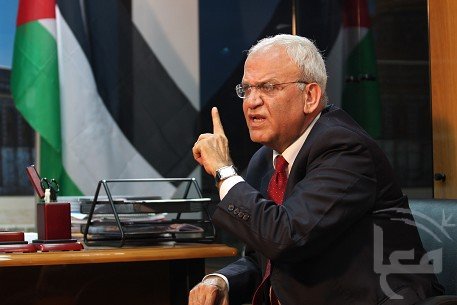

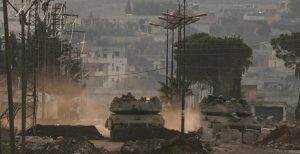



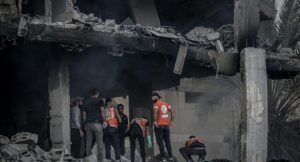


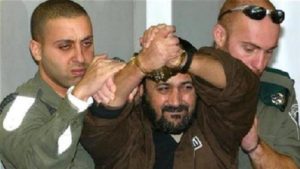

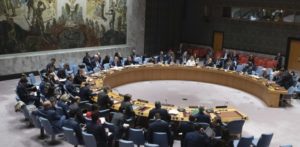
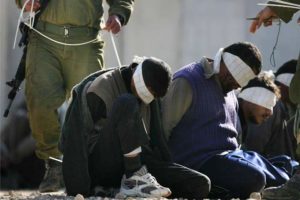






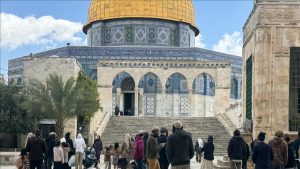
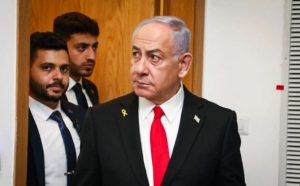




 Mina Indonesia
Mina Indonesia Mina Arabic
Mina Arabic